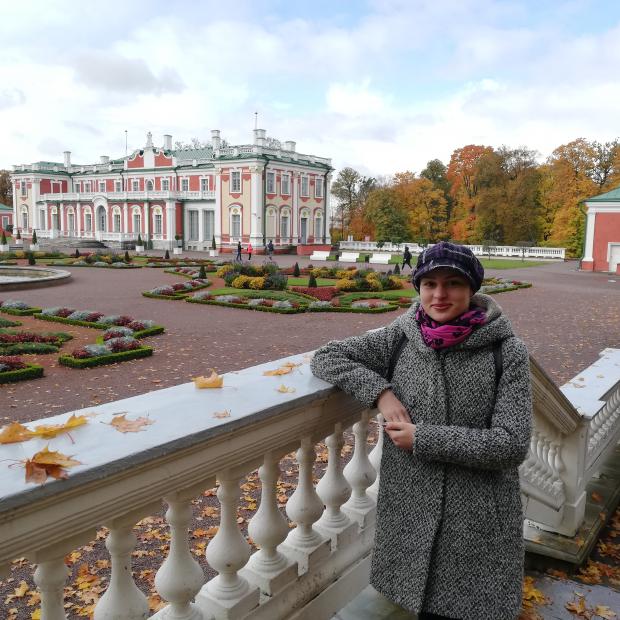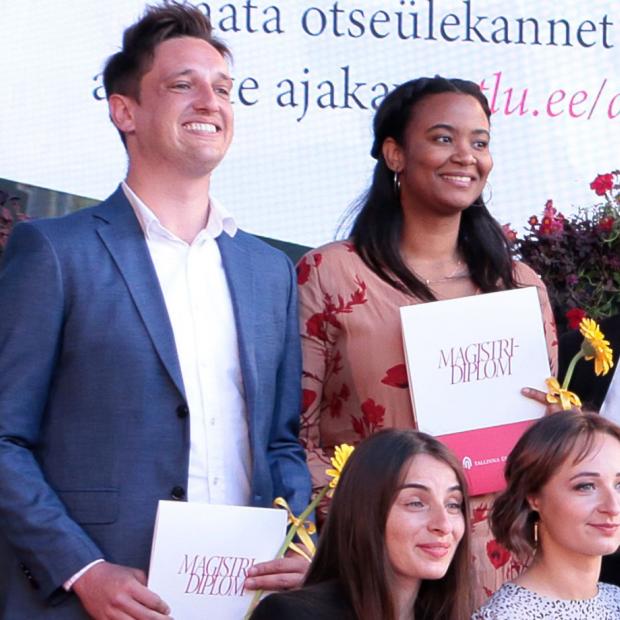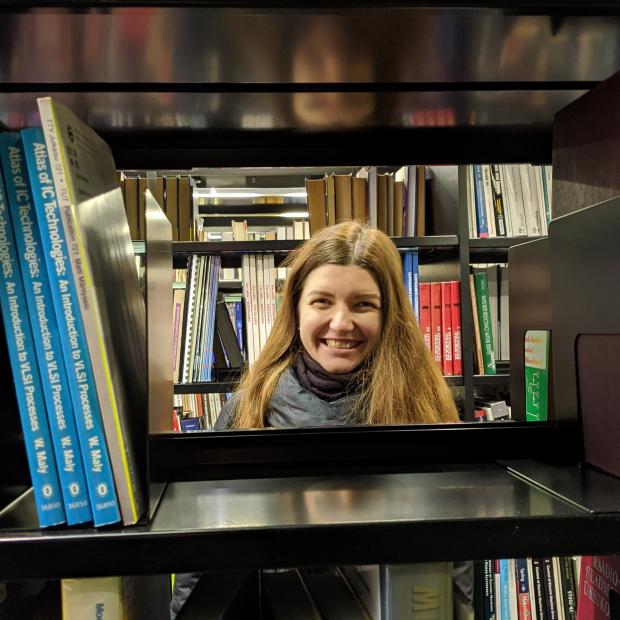Interview with Tiia Õun, the Director of the School of Educational Sciences
Tallinn University’s School of Educational Sciences will continue to be led by its current Director, Associate Professor Tiia Õun.

How do you view your time in the position of director so far?
Our aim at the School is to be a leader in educational innovation not only at the university, but in Estonia as a whole. I think we’ve met that aim with our students, alumni and the faculty.
Over the last few years we've supported research into and the realisation of educational innovations in the interdisciplinary ERA CHAIR CEITER project and evidence-based intervention programmes such as EDULAB and Future School, a number of study skills programmes and more. In collaboration with the university’s School of Digital Technologies we’ve also created a study and teaching research lab, EDUSPACE, where we’ve launched a number of research projects with other institutions and businesses.
We also focused on research and development in our academic fields to support the research capabilities of our institute in teacher education, pedagogy, lifelong learning, non-formal education, inclusive education, educational leadership and educational innovation. This spring, our faculty submitted a record number of applications for research projects, so I think we can consider ourselves successful in that area as well.
I'm glad more students have gotten involved in research projects, too. Our students and graduates are important innovators in Estonian education. We saw that during the 100th anniversary of teacher education last year, when the university alumni of the century were announced.
Thanks to the growth that’s been happening in international research and to the results of our teaching faculty and our internationalisation, our field of pedagogy made it into the Times Higher Education university rankings for the first time.
What experience have you gained for your new term in office from your previous term as director?
In my experience, the most important factor in success is cooperation, which fosters workplace satisfaction and success in research and education as well. That means cooperation at every level – between courses and academic fields and other institutes.
Cooperation and partnerships with our traineeship partners, other universities, organisations within the field, the local authorities and ministries are also important. We have leading, internationally recognised researchers working in lots of fields here at the university and I see enormous potential for development in cooperation between institutes, which could guarantee us mutual success through interdisciplinarity.
It's also important to listen to students and their ideas, and to involve them in research and development activities in the field. People and their involvement in decision-making processes are the most important things. I’ve learnt that you don't have to have all the answers as the director: you just need to be able to ask the questions that will help you find the right answers.
What are your main aims for the next five years?
The biggest challenges in research and development in our institute are finding resources for researchers and research funding. My main goals over the next five years are to develop interdisciplinary research groups, to find opportunities for external funding and to cooperate with researchers from other fields at the university.
We also need to continue the school studies and the EDULAB activities, to broaden our network of researchers and to gather more data. One aim is definitely to turn the EDUSPACE research lab into an interdisciplinary one by working with other institutes. We want it to become a lab where people can research new learning and teaching methods, launch development projects with educational institutions and cooperate effectively with businesses.
As at every level of education, the main focus at university is on the learners – the students. A student-focused approach needs to support a student's studies, as well as their motivation and satisfaction. These are the aspects we should be focusing on, according to satisfaction surveys among students from our institute.
In the field of learning, our general aim is to focus more on the individualisation and flexibility of learning, in order to create opportunities for people to use flexible methods of studying to become teachers and to evaluate relevant skills and individualise learning. Based on the OSKA reports, teachers' knowledge of educational psychology is becoming more important in order for them to be able to understand their students' development and shape the learning process. One focus is on developing the field of educational psychology at the institute, integrating it into course programmes and gathering together competencies from teaching staff and researchers who could contribute to the development of the field.
The main aim when it comes to staff is to develop a flexible system of measuring people’s workloads in the context of the new career model that will support the professional development of academics while also taking into consideration the development needs of non-academic staff members. One important aim is to make strategic plans to ensure that new young teaching staff come up through doctoral studies and to support the performance of doctoral students throughout their studies.
How do you view your own role in solving the problems facing Estonia?
Estonian education’s renowned around the world and our institute's alumni, faculty and the university as a whole play an important role in that.
Our job is to maintain it, while also thinking ahead to what education will be like in the future, what our students need and how we can prepare teachers and other professionals in the field of education for that in the best way possible.
We have to have the courage to deal with complex and critical areas in education in order to play an important role in decision-making in Estonian education policy. It's an important topic that needs to be taken into consideration in the context of sustainable development as well as the development of sustainable education at the university as a whole.
One of the key questions is the sustainability of education – what will the future of education be like in the context of global challenges?
So in a nutshell, I want to develop opportunities for our students to implement their development potential in the best possible way, and to create a work environment for the staff in our institute where every single member feels that they’re taken into account and supported. Our institute has a great team to work towards shared goals with!







